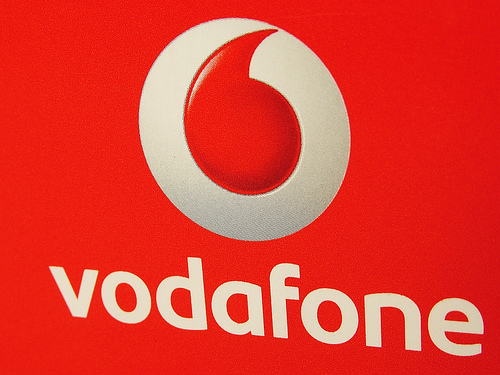


We conclude our series with a look at the 50,000 euro grand prize winner and runner-ups in the Social Participation category at the 2012 Vodafone Foundation Smart Accessibility Awards.
Vodafone, one of Europe’s leading manufacturers of mobile phone technology, launched the first competition last year with the help of the European Disability Forum and AGE Platform Europe. Their goal was to encourage application developers to consider people with disabilities in their innovations, specifically for the Google Android, but with the idea that they could adapted to all platforms. (Some of the entries were already available for the iPhone, for example.)
But an individual with a disability, by virtue of his or her condition, may not have had the same opportunities for exposure to even basic computer skills that other people do; especially when you consider many people might develop a disability as they reach their elderly years, when the learning curve for new technologies is more challenging.
That’s the premise on which Starting Blocks was built, and why the U.K.-based developer, Gemixin, earned first prize for Social Participation. The free app provides a safe environment for learning and practicing touchscreen fundamentals like finger scrolling, pinching, and swiping. “Tasks that experienced users take for granted,” says this video tutorial:
[youtube http://www.youtube.com/watch?v=9UfzFKvO70k]
Code Factory’s Mobile Accessibility with Braille support was one of the runner-ups to Starting Blocks. For people with visual disabilities, including being fully blind, this app makes all the basic phone functions accessible with screen reader and touch navigation technology.
As the download page explains, it is essentially several mini-apps in one, including texting, calling, email, calendar, and Web browsing. It is also compatible with connected Braille devices, though how that component works is not part of this introductory video:
[youtube http://www.youtube.com/watch?v=c9fYuasnWtU]
The final runner-up is Speech Assistant by A-Soft. Like the Ablah app that won first place in the Wellbeing category, the story of its origin has a very personal element. Stuart Dredge, one of the competition judges, explains in his article for The Guardian’s Apps Blog:
… [D]eveloper Ton Schalke explained he’d made it to help his hospitalised mother communicate after she lost the powers of speech. It displays a screen of words and phrases that can be pressed to create sentences, which can then be read out by the device. It’s very customisable — words, but also the colour scheme and appearance.
The customer reviews on the Google Play download page include one where a man writes that this free app works better for his wife than another technology that costs 3,000 British pounds. Most of the winning entries cost very little or almost nothing, making them even more within reach of the people with disabilities they are intended to serve.
Share the links to these apps with anyone you know who might benefit from them, and share your thoughts about how accessible technology makes life matter more for people with disabilities in the comments section.
Image by Jon Oakley.
The 2012 Vodafone Awards showcased apps like Starting Blocks, Mobile Accessibility, and Speech Assistant, empowering users with disabilities through innovative, inclusive technology.
The Pinoy Lambingan APK is a popular mobile application that allows users, particularly Filipinos living abroad, to stream Filipino TV shows, dramas, and movies. It caters to those who want to stay connected to Philippine entertainment by providing easy access to content from major networks like ABS-CBN, GMA Network, and TV5. The term “Lambingan” roughly translates to “affection” or “romantic tenderness” in Filipino, reflecting the emotional themes common in Philippine dramas.
Such an amazing and best blog so keep it up thanks!